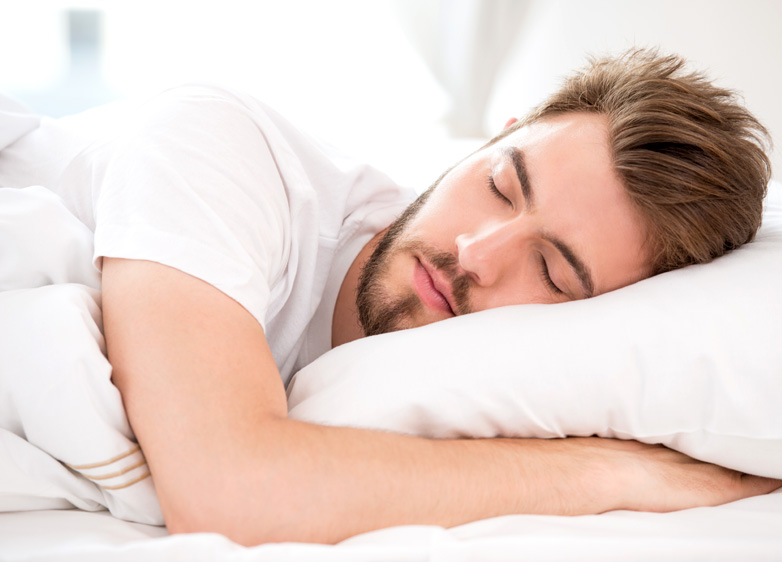Sleep Apnea
Sleep apnea is a common sleep disorder that involves repeated breathing interruptions during sleep that may occur hundreds of times each night as a result of structural abnormalities or brain malfunctions.
There are two main types of sleep apnea: obstructive and central. Obstructive sleep apnea (OSA) is the more common form of this disorder, and involves a blocked or collapsed airway during sleep that may result in breathing abnormalities. Central sleep apnea is less common, and involves a malfunction in which the brain does not send the proper signals to control breathing during sleep.
Patients who are overweight, have high blood pressure, are older, smoke or have a family history of sleep apnea may have an increased risk of developing obstructive sleep apnea, while those with heart disease or who have had a stroke are at an increased risk for central sleep apnea.
Symptoms of Sleep Apnea
Many patients with sleep apnea may not be aware that they have this condition, as breathing interruptions are not usually remembered upon waking.
However, patients with sleep apnea may experience:
- Excessive daytime sleepiness
- Snoring
- Waking up with a dry mouth or sore throat
- Morning headaches
- Insomnia
- Waking up with shortness of breath

diagnosis of Sleep Apnea CPAP/BiPAP.
A sleep study (polysomnogram) is ordered if there is suspicion for sleep apnea, as sleep apnea is diagnosed by the number a times a person stops breathing or has reduced oxygen during sleep (Apnea/Hypopnea Index or AHI and the Respiratory Depression Index or RDI).
Monitors placed on the patient measure activity while the patient is sleeping, and a CPAP (continuous positive airway pressure) or BiPAP (bilevel positive airway pressure) device is used if there is sleep apnea. The CPAP delivers pressured air at a constant rate, while the BiPAP delivers pressured air at a higher pressure while inhaling and a lower pressure while exhaling. It is the air pressure that aids in keeping the breathing passages open. CPAP and BiPAP are given connected to a mask that is placed over the mouth, the nose or both. The amount of air pressure needed is adjusted to breathe during sleep without causing apnea.
The next morning, the polysomnogram is over. More accurate results can be obtained from a two night sleep study, with the CPAP or BiPAP given on the second night. Once the results have been interpreted, a customized treatment plan can be developed. Many patients can experience significant results from CPAP or BiPAP.


